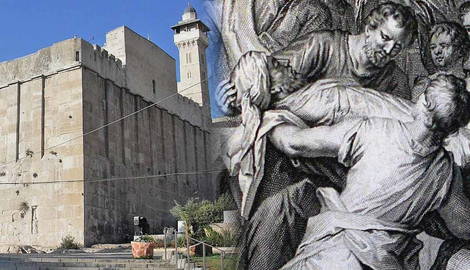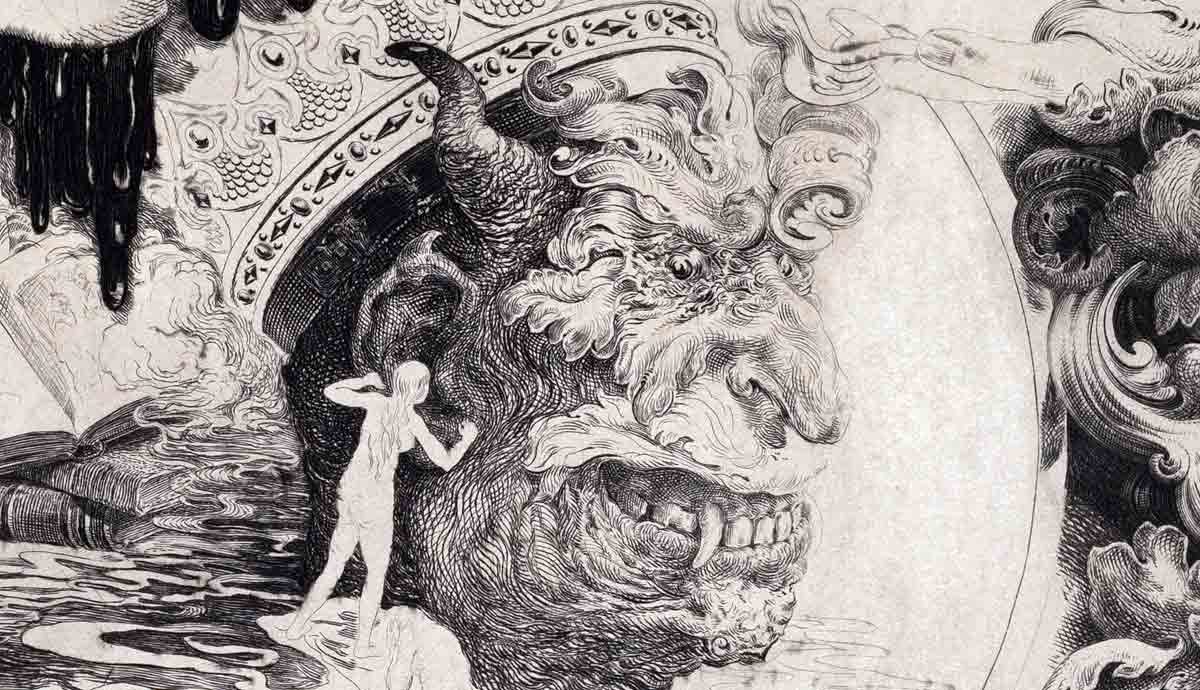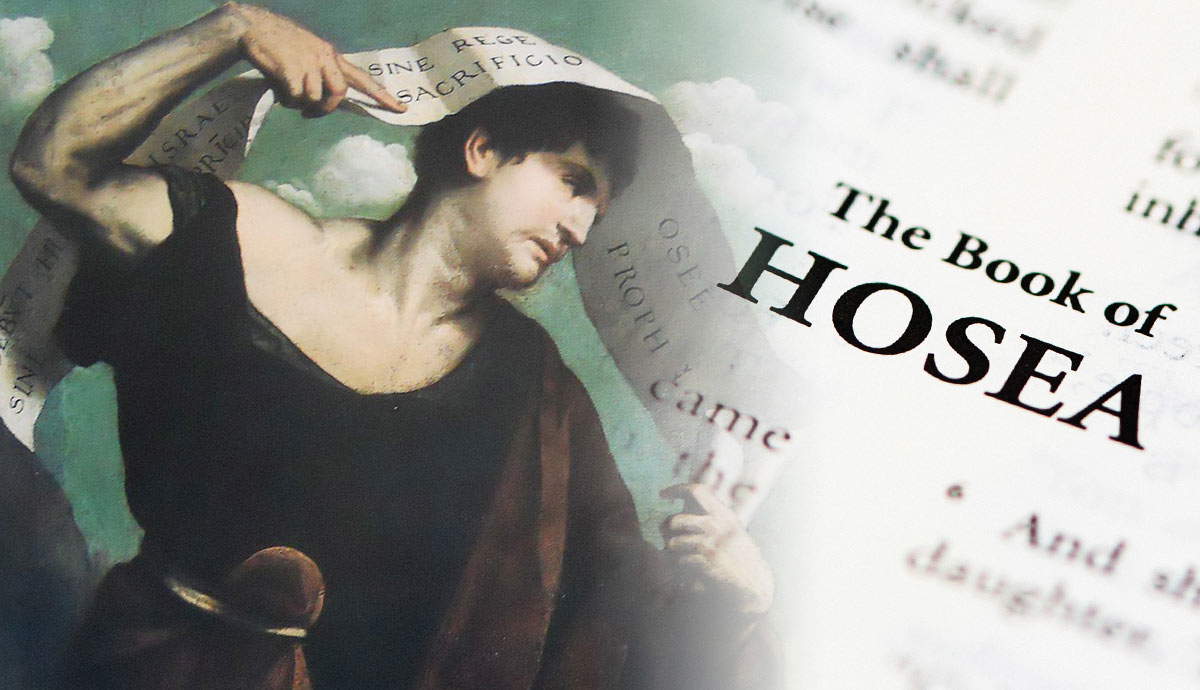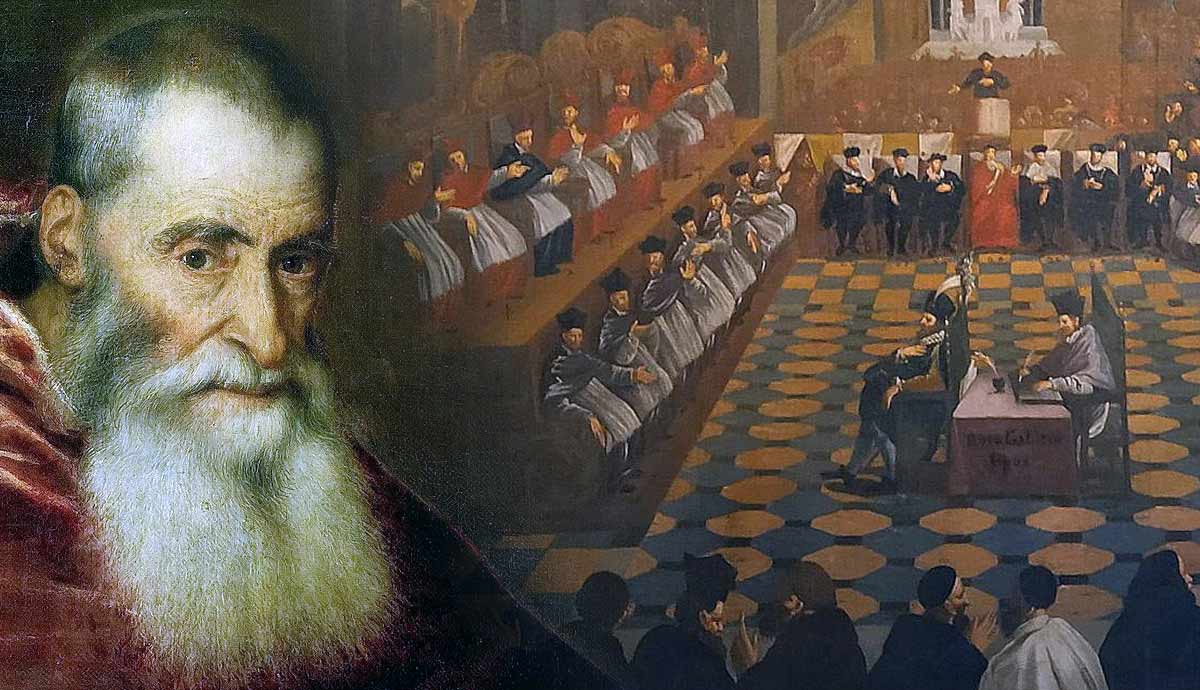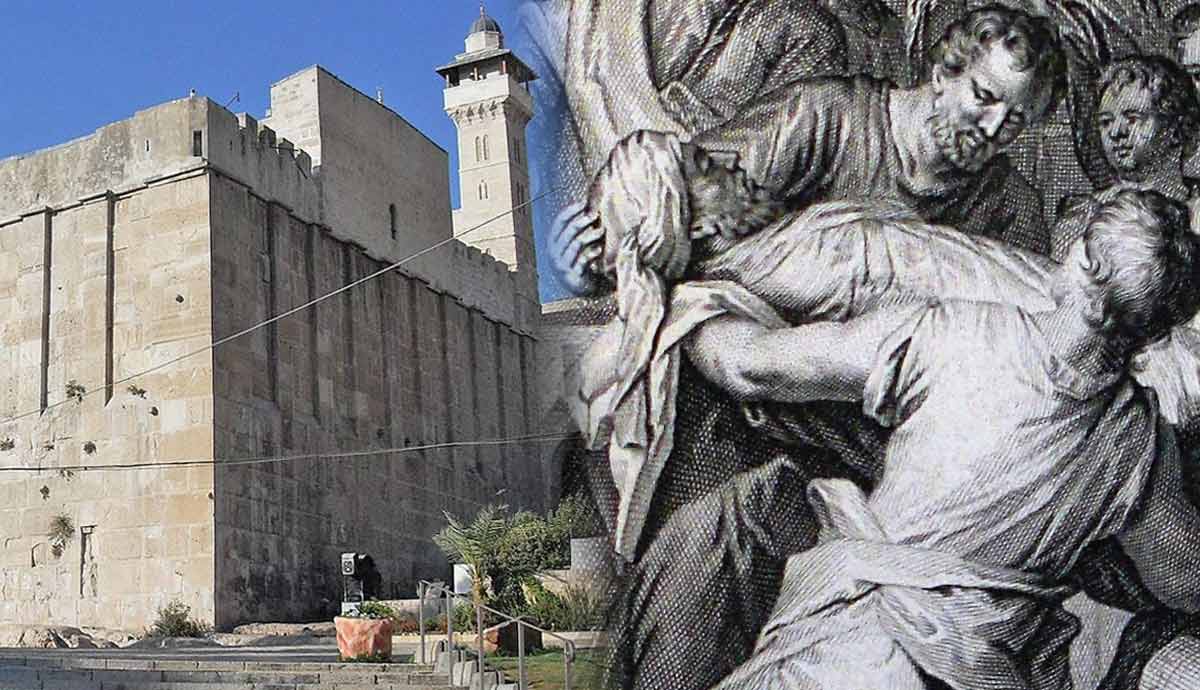
In Genesis, the first book of the Bible, God gives a promise to Abraham’s second wife Hagar. At the time she receives it, the enslaved Hagar is pregnant and is fleeing harsh treatment at the hand of Sarah, Abraham’s first wife. This promise contains elements that, in translation, sound like a prediction of hostility between Ishmael and Isaac’s descendants. When Ishmael centuries later was identified as the father of the Arabs, this negative take was read backward from modern conflicts between Arab Muslims and Jews.
Hagar’s Promise Can Seem to Predict Hostility

Hagar’s promise appears in Genesis chapter sixteen. Three elements in it appear to evoke themes of hostility. First, God says that Ishmael would be a “wild ass of a man,” which would not be considered a compliment in English-speaking contexts. Second, the text says in most English translations that Ishmael’s descendants would dwell “over against” his brother’s family, and some translations even insert the word “hostility” into the text. Third, English renderings often say that Ishmael’s hand will be “against” everyone else’s, and everyone else’s hand will be “against” him.
However, these three phrases in the text are not clearly negative in Hebrew. The symbolic significance of the wild ass in the Bible is independence and freedom, not hard-headedness—as domesticated donkeys often symbolize in popular imagery. The other two elements that often suggest hostility because of the use of the English word “against” translate phrases that, in Hebrew, are not necessarily negative.
Hagar Interprets Her Own Promise Positively

The wild ass in the Bible—a species still extant in northern Africa and central Asia—calls to mind something closer to what the image of the African zebra might in popular understanding today. The promise’s point is that, in contrast to Hagar’s enslaved condition, her descendants would be free. In a celebrated exchange, Hagar responds by becoming the first person in the Bible to give God a name. She calls God “El-Roi,” which means “The God of seeing” or “The God who sees me.” This, along with the meaning of her son’s name—“God hears”—indicates that she interprets God’s promise positively.
Did Ishmael and Isaac Have a Hostile Relationship as Adults?

In stark contrast to modern writing, Biblical Hebrew narrative is dense, seldom describing the feelings, motivations, and thoughts of the characters therein. For this reason, the actions of the characters must be interpreted if questions about the nature of a relationship are to be explored. Nothing is said directly in the Bible about Ishmael and Isaac’s childhood relationship. However, there are a few clues in the text that imply these half-brothers were not enemies as adults.
The part of Hagar’s promise translated as saying that Ishmael would live “over against” his brother is echoed later when Ishmael is said to “settle” (literally “fall”) near where his half-brother had chosen to live. Genesis further says that Isaac settled his family at Beer-lahai-roi, the place where God had given Hagar her promise. A hostile relationship between these brothers is difficult to reconcile with this choice on Isaac’s part. Instead, they are neighbors by choice.
These Brothers’ Relationship Stands Out as Peaceful

The Bible records extreme dysfunction in the brotherly relationships of two out of the three generations of his Abraham’s family following his death. Jacob famously cheated his older twin brother Esau out of his rightful inheritance and blessing. Esau swears he will kill his brother, forcing Jacob to flee. The following generation is likewise dysfunctional, as Joseph’s older brothers sell him into slavery in Egypt out of jealousy.
Yet, both of these stories end in brotherly reconciliation. In each story, the peace is sealed when the brothers choose to bury their deceased fathers together. For the reader of Genesis, this pattern recalls Genesis twenty-five where, despite the fact that Abraham had six additional sons, the text mentions only Isaac and Ishmael’s presence at their father’s entombment. If brotherly reconciliation and peaceful relations are symbolized by the sharing of the moment of a father’s being laid to rest, Ishmael and Isaac are to be credited for establishing the pattern.
Is Ishmael the Father of the Arabs?

Despite its historical inaccuracy, the idea had emerged by the first century CE that Ishmael was the father of the Arabs. While at that time the claim might have been somewhat defensible historically, it has lived on into the modern era in which it is without historical merit. Since the rise of the Arab empires of the Medieval Period that were galvanized by the rise of Islam, Arab culture has expanded far beyond the small community in which Ishmael would have built his family. Today, Arabs comprise around one-eighteenth of the world’s population—a group far too large to trace back to one man four millennia ago. Still, Ishmael is often said to be the father of the Arabs even today both in Christian and Muslim circles. This is partly due to the belief that Muhammad, the final prophet of Islam, is a descendant of Ishmael.
Are Ishmael and Isaac the Fathers of Two Different Religions?

While there have been many Jewish Arabs throughout the history of the Jewish diaspora, the two ethnicities have often been considered mutually exclusive due, in part, to the association of religious identities with each—Judaism with being Jewish and Islam with being Arab. The truth is that being Arab has nothing to do with being Muslim—except insofar as Arabia is where Muhammad received his revelations and the Arabic language was the medium in which he received them. Jewish, Christian, and Arabs who practiced traditional Arabian religions were speaking Arabic long before Muhammad was born.
In addition, the Bible itself records intermarriage between the descendants of Isaac and Ishmael. The divide between Muslim and Jew is, thus, better understood in religious than in ethnic terms. Isaac and Ishmael were of the same religious faith in the biblical telling. There is, therefore, no biblical or historical basis for the popular belief that Isaac and Ishmael are the respective fathers of two distinct Abrahamic faiths, let alone two modern ethnicities.
Why Do People Think They Were Enemies?

Many Christians understand the Palestinian-Israeli conflict today as a protracted extension of something that began in a conflict within Abraham’s family. Ironically, Ishmael and Isaac’s brotherly relationship may have been uniquely peaceful among the generations of Abraham’s descendants according to the biblical telling.
